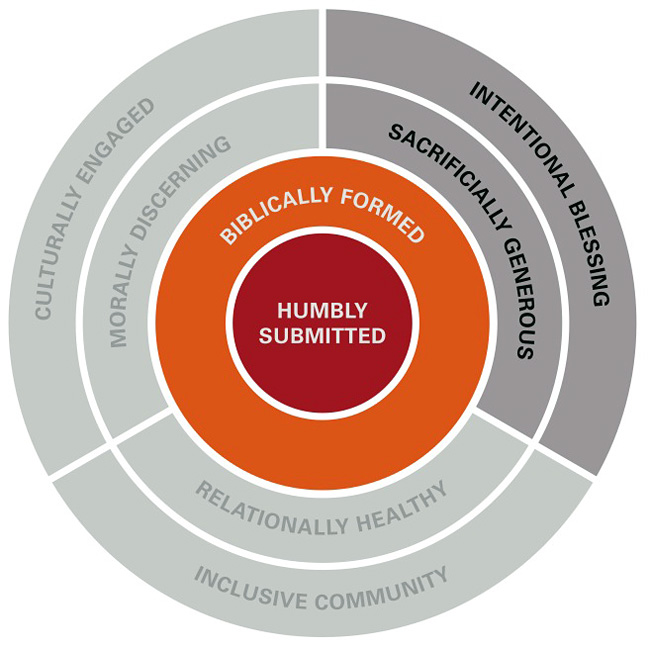This article was imported from our previous website, which many have broken some of the content. We apologize in advance for any strange formatting or broken links you may find.

This blog post is part of the series from the Spiritual Formation team walking through The Anatomy of a Disciple. This post will give you a brief snapshot of what it means to be Intentional Blessing.
Everything starts in the core of being Humbly Submitted (center circle – our heart) and Biblically Formed (second circle – our mind), as God changes your heart and mind it affects the area of your will in being Sacrificially Generous (third circle – our will). These actions of the will flow out into areas of compassion where we increasingly become an Intentional Blessing (fourth circle – our compassions).
As we considered in the Sacrificially Generous blog entry it all begins with Jesus. So lets look at how he started his ministry as we consider what it means to be an Intentional Blessing. In John 11, we see that John the Baptist wasn’t quite sure if Jesus was the Messiah. So he decided he should just ask Jesus if he was. Since he was in prison he sent some of his disciples... this was Jesus' response;
4 And Jesus answered them, “Go and tell John what you hear and see: 5 the blind receive their sight and the lame walk, lepers are cleansed and the deaf hear, and the dead are raised up, and the poor have good news preached to them. 6 And blessed is the one who is not offended by me.”
All Jesus did to validate his authority was to point to his actions. The proof of Christ was in his love and actions towards those around him, especially the poor and the hurting. The best way to verify the works of Christ was for him to say, “Well… tell me what you see!” We are not saved by our works, but our works verify our salvation (James 1-2).
In Matthew 25, Jesus gives us a haunting depiction of how he will judge those who consider themselves Christians. Jesus' metric for discipleship was that the faith of his followers would move out into the world in compassion. The people of God must have a love for those who do not know him, and especially for those who are hurting or oppressed. Another beautiful word picture that we get from Jesus about how Christians are called to be an Intentional Blessing comes in analogy of Christians to salt and light (Matthew 5:13-16).
Both of these references have a rich word picture for how we are supposed to live. Salt is a preserving agent and as Christians we prevent decay in our culture. Salt is also a flavor enhancer and as Christians we bring out the richness of what God has created. Jesus reminds his followers to again not forsake to be salt or else they will be thrown out and are worthless. He then turns to the imagery of light. We are called to shine our light by our good deeds. We shine because that is who we are and because that is what gives glory to our Father.
So our command is clear. We are called to be an Intentional Blessing to those outside of the faith. From understanding all that God has given us, and understand what time, talent and treasure we have uniquely been given we are called to be an Intentional Blessing in this world. How you do that is something only you and the Holy Spirit can answer, but our call to it is universal.
